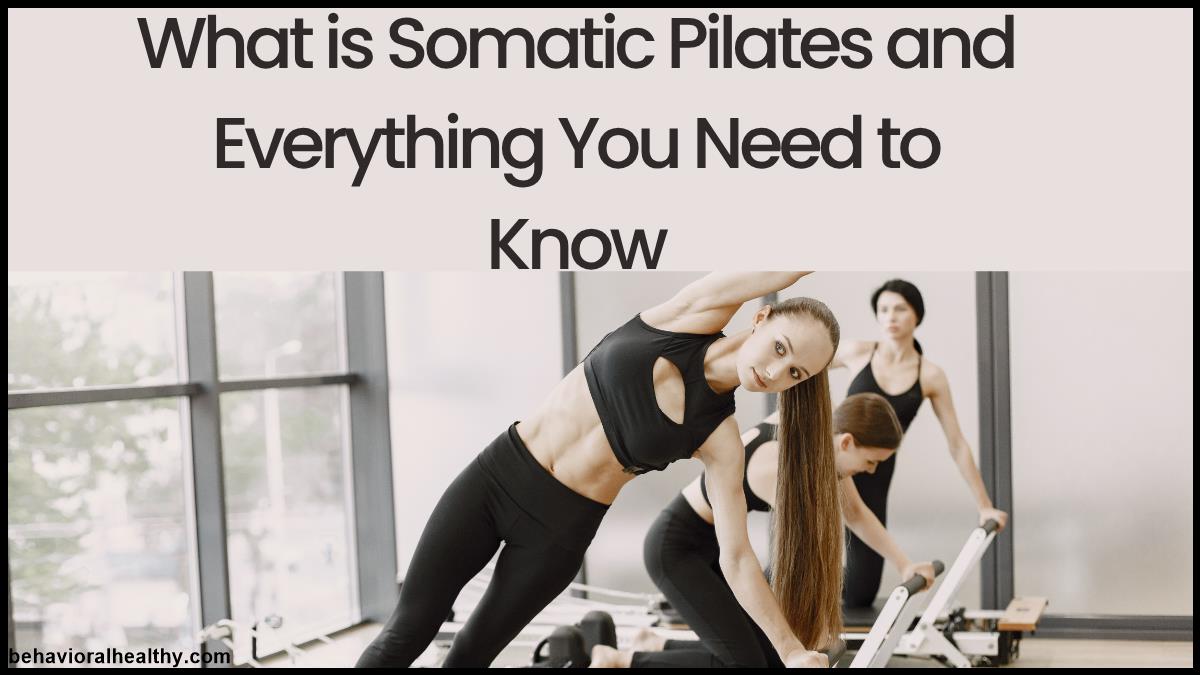If you’ve ever caught yourself being tight, tense, or slightly uncoordinated in your body, Somatic Pilates may be the perfect solution.
Table of Contents
What Is Somatic Pilates? Benefits, Basics, and How to Get Started
If you’ve ever caught yourself being tight, tense, or slightly uncoordinated in your body, Somatic Pilates may be the perfect solution. This gentle, awareness-based exercise combines pilates movements with body awareness. It enables you to move more easily, feel more comfortable, and live pain-free.
In this guide, you’ll learn what somatic Pilates is, how it works, its benefits, and how to start even from your home.
What is Somatic Pilates?
So, what is somatic Pilates? It is a combination of two words. They are somatics and Pilates.
Somatics is the sense of how your body feels from the inside out. It is more about being attentive to the way you move and where you tense up.
Pilates is an exercise that tightens the muscles in your core, improves your posture, and balances you.
When you combine all those things, somatic Pilates is a slow, conscious movement. It is not about sweat and calorie burn with regular exercise. It is about paying attention to how your body feels and being able to move so that you take away pain and stress.
How Is It Distinct From Regular Pilates
Traditional Pilates can be quick and emphasize strong movements. It tends to employ equipment such as reformers and emphasizes strengthening the core.
In contrast, Somatic Pilates is slower. It has fewer reps, more resting, and more focus on breathing and your body awareness. You do simple movements that help your brain and muscles reset patterns of pain and stiffness.
It is great for beginners, older adults, or someone recovering from stress or trauma.
Benefits of Somatic Pilates
These are the best benefits you can get:
- Less Pain
Most individuals feel relieved from persistent back, neck, or joint pain. The reason behind this is that somatic Pilates educates you on areas of tension and how to release them.
- Better Posture
You will move in a way that gives you good posture and improves your standing and sitting manners, making it effortless.
- Increased Flexibility
You stretch and go slowly, which loosens tight muscles and adds flexibility.
- Less Stress
Slow breathing and conscious attention are used in this technique, which quiets the nervous system. Most people describe it as body meditation.
- More Balance
With greater body control, you move more consistently. It can aid balance, walking, and daily functioning.
- Greater Mind-Body Connection
You get more attuned to the body. This will create improved sleep, reduced stress, and an increased sense of grounding.
How To Begin
While starting, there is no requirement for you to be flexible and fit. You can even do it at home. This is how:
Step 1: Identify a Quiet Area
Select a quiet area with gentle lighting. You will need to be able to lie on the floor or on a yoga mat in silence without distraction.
Step 2: Begin with Simple Movements
Start with simple movements such as pelvic tilts, slow twists, or side bends. Focus on slow, smooth motions. Move only as far as your body is able. No need to hurry.
Step 3: Observe How You Feel
Don’t keep track of the number of repetitions, but pay attention to how the movement feels. Is your neck tight? Are you tightening your jaw? Awareness of these is the start of releasing stress.
Step 4: Allow Breath to Guide You
Breathe in slowly through the nose and out through the mouth. Ensure that your movement and breathing are perfectly synced. This will calm the brain and resonate with the muscles in your body.
Step 5: Practice Routinely
Even 10-15 minutes a day can be beneficial. It will become more natural if you practice regularly.
Tips for Beginners
- Don’t push or hurry
- Just keep checking in with your body
- Practice with audio or video lessons. Find beginner somatic Pilates classes online.
- Rest when needed. It is okay to take breaks.
Who Can Attempt Somatic Pilates?
Everyone can do Somatic Pilates. It is beneficial if you:
- Spend the day working at a desk
- Experience back, shoulder, or neck pain
- Feel stiff from injury or surgery
- Are you recovering from surgery or trauma
- Require a low-impact relaxation exercise
- Struggle with stress, anxiety, or fatigue
You may want to consult a doctor if you have a serious medical condition, but everyone else can begin slowly at home.
What to Expect From Your Practice?
At first, the movements will feel too slow or too easy. That is fine. Slowly, you will begin to notice how much healthier your body feels. You may feel:
- Lighter and less tense
- Fewer hurts and pains
- More energy
- Clearer mind
The real change results from doing it regularly and being attentive to your body.
To Conclude
Somatic Pilates is not just an exercise. It is a way of feeling better, moving more comfortably, and living less painfully. If you are just starting with fitness or need to stay more active, somatic Pilates offers unique benefits. It helps you know about your body and how to treat it kindly.
Begin with easy steps, keep a routine, and listen to what your body needs. In time, you will feel more in control, more at peace, and more alive.

